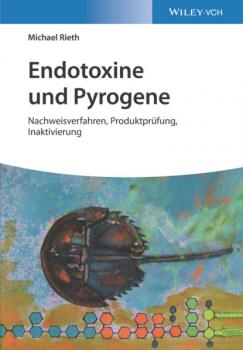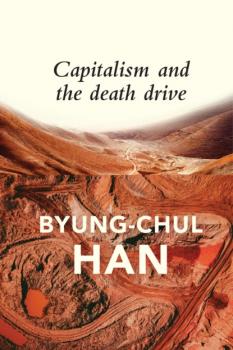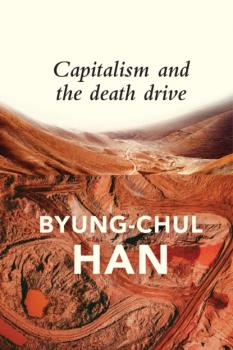John Wiley & Sons Limited
Все книги издательства John Wiley & Sons LimitedEndotoxine und Pyrogene
Diese erste deutschsprachige Übersicht beschreibt praxisnah alle verfügbaren und in der europäischen Pharmakopöe aufgenommenen Nachweisverfahren für bakterielle Endotoxine und andere Pyrogene. Jede Methode wird ausführlich beschrieben und anhand von Praxisbeispielen einschließlich der produktbezogenen Methodenvalidierung präsentiert. Neueste Erkenntnisse zur Maskierung von Endotoxinen und dem LER (low endotoxin recovery)-Effekt sowie neuentwickelte Methoden zur Endotoxinbestimmung mittels rekombinanter Testsysteme werden vorgestellt. Eine Beschreibung der notwendigen Ausrüstung sowie der hauptsächlichen Einsatzgebiete runden dieses Buch ab.
Capitalism and the Death Drive
What we call growth today is in fact a tumorous growth, a cancerous proliferation which is disrupting the social organism. These tumours endlessly metastasize and grow with an inexplicable, deadly vitality. At a certain point this growth is no longer productive, but rather destructive. Capitalism passed this point long ago. Its destructive forces cause not only ecological and social catastrophes but also mental collapse. The destructive compulsion to perform combines self-affirmation and self-destruction in one. We optimize ourselves to death. Brutal competition ends in destruction. It produces an emotional coldness and indifference towards others as well as towards one’s own self. The devastating consequences of capitalism suggest that a death drive is at work. Freud initially introduced the death drive hesitantly, but later admitted that he ‘couldn’t think beyond it’ as the idea of the death drive became increasingly central to his thought. Today, it is impossible to think about capitalism without considering the death drive.
Colonialism and Modern Social Theory
Modern society emerged in the context of European colonialism and empire. So, too, did a distinctively modern social theory, laying the basis for most social theorising ever since. Yet colonialism and empire are absent from the conceptual understandings of modern society, which are organised instead around ideas of nation state and capitalist economy. Gurminder K. Bhambra and John Holmwood address this absence by examining the role of colonialism in the development of modern society and the legacies it has bequeathed. Beginning with a consideration of the role of colonialism and empire in the formation of social theory from Hobbes to Hegel, the authors go on to focus on the work of Tocqueville, Marx, Weber, Durkheim and Du Bois. As well as unpicking critical omissions and misrepresentations, the chapters discuss the places where colonialism is acknowledged and discussed – albeit inadequately – by these founding figures; and we come to see what this fresh rereading has to offer and why it matters. This inspiring and insightful book argues for a reconstruction of social theory that should lead to a better understanding of contemporary social thought, its limitations, and its wider possibilities.
Autonomy
In everyday life, we generally assume that we can make our own decisions on matters which concern our own lives. We assume that a life followed only according to decisions taken by other people, against our will, cannot be a well-lived life – we assume, in other words, that we are and should be autonomous. However, it is equally true that many aspects of our lives are not chosen freely: this is true of social relations and commitments but also of all those situations we simply seem to stumble into, situations which just seem to happen to us. The possibility of both the success of an autonomous life and its failure are part of our everyday experiences. In this brilliant and illuminating book, Beate Roessler examines the tension between failing and succeeding to live an autonomous life and the obstacles we have to face when we try to live our life autonomously, obstacles within ourselves as well as those that stem from social and political conditions. She highlights the ambiguities we encounter, examines the roles of self-awareness and self-deception, explores the role of autonomy for the meaning of life, and maps out the social and political conditions necessary for autonomy. Informed by philosophical perspectives but also drawing on literary texts, such as those of Siri Hustvedt and Jane Austen, and diaries, including those of Franz Kafka and Sylvia Plath, Roessler develops a formidable defense of autonomy against excessive expectations and, above all, against overpowering skepticism.
Applied Water Science
Water is one of the most precious and basic needs of life for all living beings, and a precious national asset. Without it, the existence of life cannot be imagined. Availability of pure water is decreasing day by day, and water scarcity has become a major problem that is faced by our society for the past few years. Hence, it is essential to find and disseminate the key solutions for water quality and scarcity issues. The inaccessibility and poor water quality continue to pose a major threat to human health worldwide. Around billions of people lacking to access drinkable water. The water contains the pathogenic impurities; which are responsible for water-borne diseases. The concept of water quality mainly depends on the chemical, physical, biological, and radiological measurement standards to evaluate the water quality and determine the concentration of all components, then compare the results of this concentration with the purpose for which this water is used. Therefore, awareness and a firm grounding in water science are the primary needs of readers, professionals, and researchers working in this research area. This book explores the basic concepts and applications of water science. It provides an in-depth look at water pollutants’ classification, water recycling, qualitative and quantitative analysis, and efficient wastewater treatment methodologies. It also provides occurrence, human health risk assessment, strategies for removal of radionuclides and pharmaceuticals in aquatic systems. The book chapters are written by leading researchers throughout the world. This book is an invaluable guide to students, professors, scientists and R&D industrial specialists working in the field of environmental science, geoscience, water science, physics and chemistry.









